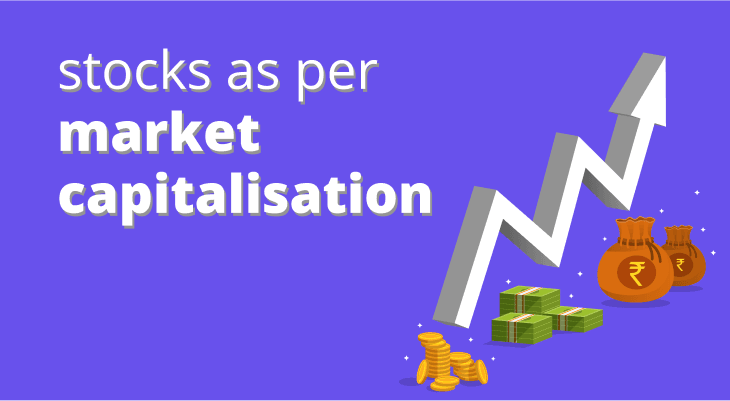
How are Share Prices Determined?
In recent years, hundreds of thousands of Indians have turned towards the stock market to generate wealth and meet their financial goals. But, when you invest in the stock market, one of the key aspects you need to grasp is how share prices are determined. The value of a share, or its price, is influenced by various factors and mechanisms. Understanding these factors not only helps you make informed investment decisions but also enhances your overall market knowledge. Let us understand how share prices are determined and the factors that impact them.
What Is a Stock Price?
The stock price or share price is the current market value of a single share of a company’s stock. It reflects what investors are willing to pay for a share at a given moment. The price is dynamic, changing throughout the trading day based on supply and demand in the stock market. Essentially, the share price is an indication of how much investors value the ownership of a company's stock at a specific time.
How Does Stock Price Work?
The stock price works through the principles of supply and demand. When a stock is in high demand with more buyers than sellers, the price tends to rise. Conversely, if more people want to sell a stock (high supply) than buy it (low demand), the price usually falls. This fluctuation is driven by various factors, including market sentiment, news, and economic indicators.
In addition to basic supply and demand, stock prices are also influenced by market orders. When you place a market order to buy a stock, it gets filled at the current market price. This continuous buying and selling creates a real-time price adjustment mechanism in the stock market.
Why Do Stock Prices Change After Hours or Over the Weekend?
Stock prices do not remain static outside of regular trading hours. They can change after hours or over the weekend due to several reasons:
- After-Hours Trading: Many stock exchanges allow trading after the regular market hours. During this period, stock prices can be influenced by news releases, earnings reports, or other significant events that occur outside of regular trading hours.
- Weekend Influences: Over the weekend, news and events can affect market sentiment and influence stock prices when the market reopens. For instance, political developments, international events, or economic reports released during the weekend can impact investor expectations and stock prices.
How Are Stock Prices Determined in India?
In India, stock prices are determined similarly to other markets, with some specific processes and regulations:
- Stock Exchanges: In India, major stock exchanges like the Bombay Stock Exchange (BSE) and the National Stock Exchange (NSE) guide and control the trading of shares. These exchanges provide a platform where buyers and sellers can trade shares, and the share prices are determined by the matching of buy and sell orders.
- Market Mechanisms: Indian stock prices are influenced by market mechanisms such as the Order Matching System, where buy and sell orders are matched based on price and time priority. The price at which the highest number of buy and sell orders match becomes the current market price.
- Regulatory Framework: The Securities and Exchange Board of India (SEBI) regulates the stock markets in India to ensure transparency and fairness. SEBI's guidelines and regulations help in maintaining a structured and orderly trading environment.
Factors Influencing Stock Prices
Several factors influence how share prices are determined. These include:
1. Company Performance:
- Earnings Reports: Companies release quarterly earnings reports, which include revenue, profit, and other key financial metrics. Positive earnings often lead to an increase in stock price as they indicate company growth and profitability. On the other hand, disappointing earnings can result in a decline in stock price.
- Management Changes: Changes in key management positions can impact investor confidence. Strong leadership is often associated with positive stock performance, while frequent changes or poor management may negatively affect stock prices.
2. Economic Conditions
- Interest Rates: Interest rates set by central banks can influence stock prices. Lower interest rates make borrowing cheaper, encouraging investment and spending, which can boost stock prices. Higher rates can have the opposite effect by increasing borrowing costs and potentially reducing corporate profits.
- Inflation: Inflation impacts the purchasing power of consumers. Moderate inflation is typically seen as a sign of a growing economy and can be positive for stocks. However, high inflation can erode profit margins and reduce consumer spending, leading to lower stock prices.
3. Market Sentiment
- Investor Behaviour: Market sentiment, driven by news, social media, and general investor mood, can affect stock prices. Positive news or hype can drive stock prices up, while negative news or market panic can lead to declines.
- Economic Reports: Regular economic reports, such as GDP growth, unemployment rates, and consumer confidence indices, influence market sentiment. Strong economic indicators generally boost investor confidence and stock prices.
4. Industry Trends
- Sector Performance: The performance of the sector or industry in which a company operates can impact its stock price. For example, technological advancements can drive up stock prices in the tech sector, while regulatory changes can negatively affect industries like healthcare or finance.
- Competitive Positioning: A company's competitive advantage, such as technological leadership or market share, influences its stock price. Companies with strong competitive positioning are more likely to perform well, which can positively affect their stock prices.
5. Global Events
- Geopolitical Events: Political instability, trade wars, and international conflicts can create uncertainty, affecting stock prices. Global events can disrupt supply chains, impact commodity prices, and influence investor confidence.
- Economic Policies: Global economic policies, such as trade agreements or sanctions, can impact stock prices by affecting international trade and investment flows. Policies that promote trade and economic growth are generally positive for stocks.
6. Supply and Demand
- Stock Supply: The number of shares available for trading (supply) compared to the number of buyers (demand) plays a critical role in determining stock prices. A limited supply with high demand can push prices higher, while an oversupply can lead to lower prices.
- Market Orders: The type of orders placed by investors (market orders, limit orders) can impact stock prices. Large buy or sell orders can lead to significant price movements, particularly in stocks with lower trading volumes.
7. Market Speculation
Speculation by investors and traders based on future expectations can drive stock prices. Rumours, anticipated events, or projections of future growth can lead to price swings, often disconnected from a company’s current performance.
8. Regulatory Environment
Changes in regulations, such as new laws or compliance requirements, can affect company operations and profitability. Positive regulatory changes can boost stock prices, while increased regulatory burdens can lead to declines.
Conclusion
Understanding how share prices are determined is crucial for making informed investment decisions. Share prices are influenced by a mix of company-specific factors, broader economic conditions, market sentiment, and global events. By recognising these factors and how they interact, you can better navigate the stock market and make more strategic investment choices.
FAQ
What factors influence share prices?
Share prices are influenced by factors such as company performance, economic indicators, market sentiment, global events, and supply and demand dynamics.
How does supply and demand affect stock prices?
Supply and demand are crucial in determining stock prices. If demand for a stock increases and supply remains constant, the price typically rises. Conversely, if supply exceeds demand, the price usually falls.
How do market analysts and experts predict stock prices?
Analysts predict stock prices using a combination of financial statements, historical data, market trends, and economic indicators. They often use technical analysis (charts) and fundamental analysis (company performance) to make forecasts.
How do you know when a stock will go up?
Identifying when a stock will rise involves monitoring company performance, market conditions, and analyst forecasts. Look for positive earnings reports, strong industry trends, and favourable economic indicators to predict potential price increases.
What is the role of economic indicators in stock price determination?
Economic indicators such as GDP growth, inflation rates, and interest rates impact investor confidence and stock prices by affecting overall economic conditions and company performance.
How do global events affect stock prices?
Global events like geopolitical tensions or international economic changes can influence investor sentiment and market dynamics, leading to fluctuations in stock prices.
What is the significance of supply and demand in determining stock prices?
Supply and demand dynamics drive price changes. Higher demand relative to supply can push prices up, while higher supply relative to demand can lead to price declines.
How does company performance impact its stock price?
A company's financial health and performance, including earnings reports and profitability, directly affect its stock price. Positive performance typically leads to higher prices.
Why do stock prices change over the weekend?
Stock prices can be influenced by news and events occurring over the weekend, which impact investor expectations when the market reopens.
How is the price of shares calculated in real-time?
The price of shares in real-time is calculated based on the latest transactions and the matching of buy and sell orders in the stock market, reflecting current supply and demand conditions.


